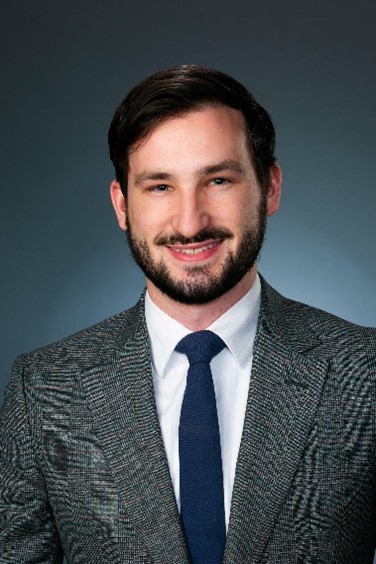HAS THE FAA DONE ENOUGH TO ADDRESS MENTAL HEALTH IN AVIATION?
The updated AME Guide grants more discretion to AMEs, allowing them to issue medical certificates to airmen with common, aeromedically insignificant mental health conditions. Such a change may reduce some of the fear airmen experience when reporting mental health treatment to the FAA and may build trust through face-to-face relationships with their AMEs. But it still requires airmen to report what is often very personal and sensitive information to a government agency.
In this writer’s opinion, the FAA has not gone far enough. While progress has been made with the possibility for immediate issuance with the use of talk therapy, AMEs are still required to defer any airman treating with medication or with any diagnoses not listed in the Guide. Accordingly, the current policy still stigmatizes the treatment of mental health conditions among pilots and ATCs.
Withholding medical certification due to mental health treatment such as talk therapy and proven pharmacotherapy methods stigmatizes the underlying conditions, whether aeromedically significant or not. With the several barriers in mind, pilots often resist effective treatment options that would mitigate risk to aviation safety due to airmen’s lack of trust in the certification process and fear of revocation. Stigmatizing proper treatment through required reporting without liberalizing policies on the certification of airmen with mental health conditions does little to make the NAS safer and instead compels some pilots to “lie to fly.”
To be clear, the FAA must change its current policy, which requires airmen to disclose talk therapy and all pharmacotherapy to better reflect the prevalence and effectiveness of those treatments for aeromedically insignificant mental health conditions that are increasingly common among the American population today. Instead, the FAA must alter its aeromedical screening process and application instructions to allow pilots and ATCs to engage in psychotherapy without requiring disclosure, in accordance with the ARC’s first recommendation. Additionally, the FAA must implement a pathway to immediate issuance of a medical certificate for airmen effectively treating mental health conditions through pharmacotherapy with acceptable medications, following an appropriate observation period.
CONSEQUENCES ON THE FUTURE OF AVIATION
The primary benefit of reducing reporting requirements and other barriers to certification for airmen with mental health conditions is safety. The current culture surrounding the medical certification process for pilots stigmatizes mental health conditions and proven treatment methods. As such, airmen are forced to choose between their mental health and their medical certification. Faced with such a difficult decision, many airmen sacrifice their own mental health and avoid treatment to remain eligible for medical certification. The stigma around mental health conditions, and the consequences of treatment for airmen, must be addressed to allow the aviation community to take advantage of advances in the treatment of mental health conditions.
Failure to destigmatize talk therapy and other mental health treatments may also ground safe, healthy pilots or prevent them from ever gaining certification in the first place. CDC data indicate that the percentage of adults receiving mental health treatment is increasing (up from 19.2% in 2019 to 21.6% of all adults in 2021).1 Those numbers are even higher among women and adults aged 18-44.2 That research suggests that current reporting requirements and certification policies may disproportionately affect women and younger adults. The effect of such a barrier to medical certification for women and younger pilots and ATCs may hinder future generations of airmen, especially as the prevalence of mental health treatment increases among Americans each year.
The advancement of medicine in the field of mental health is a positive development and our knowledge is constantly expanding. The FAA should embrace the revolutionary moment in the field of mental health and recognize the opportunity to improve its own policies and regulations to better accommodate healthy airmen, allowing them to treat common, aeromedically insignificant conditions with proven methods such as talk therapy and medication. Such a decision has the potential to make aviation more inclusive and safer for everyone involved.
If you are a pilot, ATC, or aspiring airman concerned about your mental health history and the medical certification process, you should seek competent legal advice immediately.
1 Emily P. Terlizzi, MPH & Jeannine S. Scholler, MPH, Mental Health Treatment Among Adults Aged 18-44: United States, 2019-2021, Nat’l Ctr. for Health Stat. Data Brief No. 444, Sept. 2022, at https://www.cdc.gov/nchs/products/databriefs/db444.htm.
2 Id.
The opinions expressed in this article are those of the author.

Matt Bulow
Matt Bulow is an aviation attorney with Ramos Law – Aviation in Broomfield, Colorado. Ramos Law was founded by Dr. Joseph Ramos, MD, JD, who, in addition to being a medical doctor and attorney, is an active pilot. The Aviation Division of Ramos Law is directed by Joseph LoRusso, JD, an ATP-rated professional pilot who opened his own law firm after realizing the need for advocacy on behalf of pilots, which eventually led him to join forces with Dr. Ramos at Ramos Law. Zeke Denison, JD, is the Medical Certificate Defense Lead at Ramos Law – Aviation, focusing exclusively on the often-complex medical certification process that most pilots must navigate regularly. In addition to medical certificate defense, Ramos Law – Aviation provides legal services to victims of aviation crashes. Ramos Law – Aviation is passionate about providing the best possible representation to pilots and keeping safe pilots in the air.






